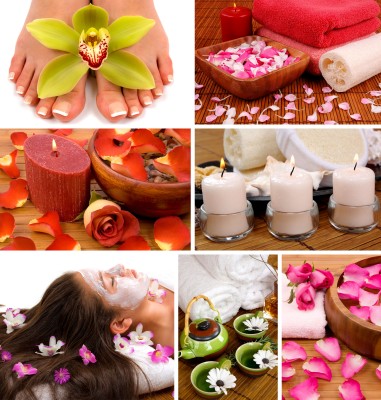Aromatherapy for Pregnancy and Birth by Sonia Griffiths BSc(Hons) MSc
Sonia is a fully qualified aromatherapist and member of the Federation of Holistic Therapists.

Aromas have a very powerful effect upon us and can influence our emotional state. Aromatherapy, however is much more than just pleasant fragrances. So we would like to introduce you to some of the benefits that aromatherapy can give you, and how it can be used to compliment your Second Nature Birth Program.
Roughly translated Aromatherapy means “Treatment with scents”. It is the use of aromatic essential oils as a complementary therapeutic treatment to heal and uplift the body, mind & spirit. It can bring great benefit throughout pregnancy and beyond for both the mother and the birthing companion.
Aromatherapy employs many different methods to introduce essential oils into the body. The most well known is massage which is helpful to relieve stress and aching muscles and helps to promotes a feeling of well being. Other methods are: aromatic baths, vaporisers, inhalations and compresses.
An important consideration when using essential oils is that with the exception of lavender for burns and tea tree for skin eruptions, theymust never be put onto the skin in a neat format.
They can be diluted in carrier oils, creams and lotions for massage, into milk to be added to a bath or diluted in water for compresses. An important point is that in pregnancy the dilutions must be half of that for a normal adult. So for massage you need 2 drops of essential oil per 10mls of carrier oil, or 3-4 drops in a bath.
Next is a word of caution about the essential oils, which are unsafe for use during pregnancy.
Many of the unsafe oils are said to be emenogogues, which means they promote menstrual bleeding and may induce miscarriage.
Therefore oils not to be used are: Basil, clary sage, cedarwood, cypress, fennel, jasmine, juniper, lemongrass, marjoram, myrrh, origanum, parsley, peppermint, rose, rosemary and thyme.
Some of these oils however, are beneficial during labour only and these will be discussed later.
In addition, chamomile and lavender, although usually very safe oils, must be avoided during the first trimester, but after that can be very beneficial for certain conditions.
Although the recommended essential oils for pregnancy and labour are fine to use in a vapouriser, we would advise that you consult a qualified aromatherapist before using any essential oil on your skin. The benefits of a professional massage are many fold including: reducing aches and pains, promoting relaxation, reducing water retention, nourishing the skin and providing a feeling of well-being.
All vegetable based carrier oils can be very beneficial to the skin but do take care if you have e.g. a nut allergy. Cold pressed coconut oil can help prevent or reduce stretch marks, and importantly a blend of sweet almond oil and jojoba is recommended during your last 8 weeks in order to prepare the perineal skin for birth.
Blend 40 ml sweet almond oil and 10ml of jojoba oil into a sealable plastic container and massage in a few drops daily. (There is another PDF on this site which describes how to perform perineal massage.) Those with a nut allergy should use cold pressed olive oil and wheat germ oil in a 45ml to 5ml ratio, as an alternative.
Many of the citrus oils like orange, lemon, grapefruit and bergamot are safe during pregnancy and have uplifting qualities. However do not use them before exposure to direct sunlight as they can cause skin pigmentation.
Beneficial oils used to aid relaxation and reduce stress and anxiety are: bergamot, lavender and neroli. Ylang ylang is also a relaxing oil but it can be quite heady, so limit the amount of drops to one per blend.
Examples of relaxing bath blends are:
- 2 drops of lavender and 1 drop of ylang ylang
- 2 bergamot, 1 neroli
- 2 lavender 1 geranium and 1 frankincense.
Aromatherapy in Labour
Essential oils in the delivery suite can both disinfect the atmosphere and create a relaxing ambience.

Experiment beforehand to ensure the aroma is pleasing. A nice relaxing mix to be added to a bowl of hot water is: 2 drops of lavender, 2 drops of geranium and 2 drops of lemon or bergamot.
At this stage, Clary sage can be used as it is a sedative, with analgesic properties. It can be dropped onto a handkerchief for inhalations, although it is not recommended if you are using gas and air.
There follows a list of other useful oils that can be used in labour:
- Geranium is great for the circulation and helps breathing
- Jasmine is warm and fragrant and has anti-spasmodic and analgesic properties. It is also very beneficial in a compress on the lower abdomen to help expel the placenta
- Lavender is antiseptic and excellent for aching backs and limbs. It is recommended in a bath during the early stages and is wonderful for the healing of vaginal tears or episiotomy scars
- Neroli helps combat any fear or apprehension
- Rose is a very feminine oil and is a uterine tonic which helps to regulate labour
- Ylang Ylang is very calming and helps lower the blood pressure
Remember, essential oils can be dangerous if not used appropriately and they are never to be ingested. Don’t forget your birthing companion will also benefit from the oils, as they may also appreciate their calming qualities during your pregnancy and labour. Try giving each other a relaxing massage or visit a therapist for a full body treatment. Most of all enjoy your oils safely.